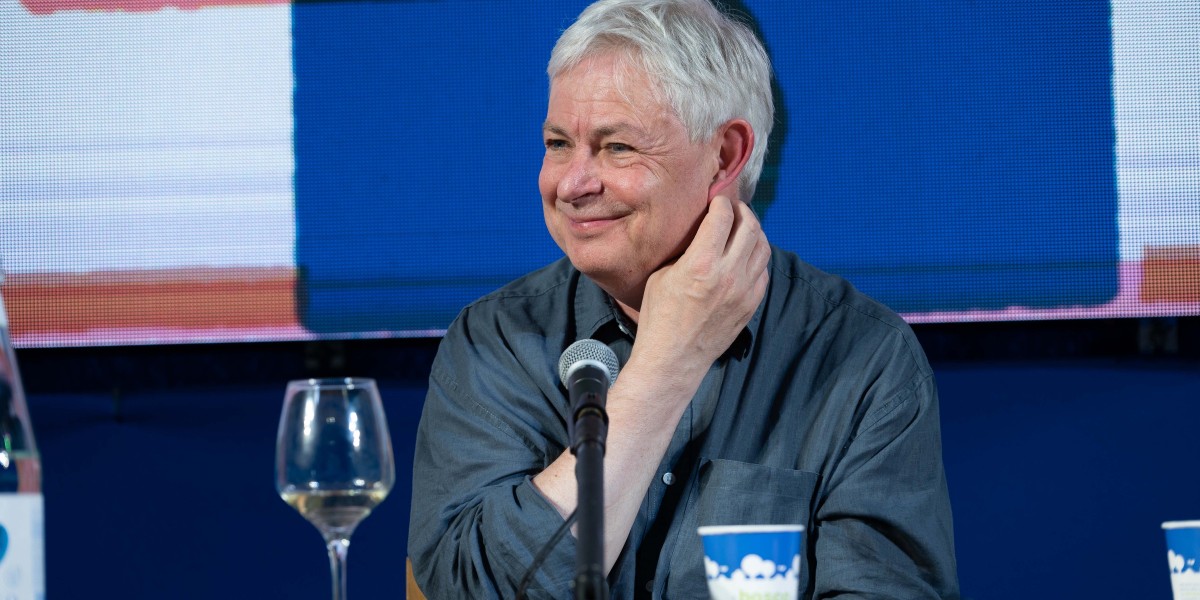
Chocolate and rage in Jonathan Coe's Bournville
In Bournville, Jonathan Coe gives us both ethos and taste. A “garden village” about four miles to the south of Birmingham’s heart, Bournville was a company town. Green, quaint, liveable, it was built around a century ago for workers of the local Cadbury factory and their families. The Cadbury's were Quakers, motivated by their faith to care about the living standards of their employees. This caring capitalist ethos couldn’t be more relevant to present day Britain’s long haul deindustrialisation and current cost-of-living crisis.
But Bournville was more than an attempt at fusing industry, nature, and humane living. It was the “taste of my childhood”, declares Coe. Born not far from Bournville, some of Coe’s sweetest memories have the taste of Cadbury’s chocolate. His grandparents worked at the Cadbury factory, bringing home chocolate fallen from the conveyer belts or not fit for selling. The fact that Cadbury’s has watered down its chocolate with vegetable fat since World War II does not matter to Coe, nor did it ever to the rest of the British public - much to the Italian audience's dismay!
The nervous chuckles of the crowd gathered at Piazza Castello are quickly reined in by Peter Florence. At a literature festival, chocolate wars have to make way for “structure” at some point. Coe’s novels are often anchored by great national moments. That’s how his works come together. That’s when Britain comes together, from VE Day to the 1966 World Cup finals against Germany.
Presumably, at least. In the words of Pater Florence, this book “explains Brexit without ever mentioning it”. The referendum posed a “painful, binary choice between being European or British”, Coe elaborates, “which betrayed the need for a multi-layered conversation around national identity”. Despite sitting clearly in the Remain camp, Coe does not deal in binaries. Some of the characters of Bournville are quietly but implacably racist; Coe allows them to be human, “you can’t think of them as worthless”.
Bournville, then, is a masterful attempt at starting a national conversation. More than the split from the European Union, Coe’s focus is on a never-more Disunited Kingdom. In fact, one of his previous books, Middle England, carried this very title in the French edition. In Bournville, it’s up to Mary, the family matriarch, to dissect disunity via the story of Capel Celyn. The Welsh village was flooded by England to provide a water reservoir for Liverpool and the industrial north. That was 1965, and for Coe, forms a parallel for the fashion in which England “dragged Scotland out of Europe” in 2016.
When Bournville takes us to Britain’s first lockdown in 2020, rage becomes palpable. Coe’s mother - to whom he pays tribute with Bournville’s Mary - died alone and isolated during the first lockdown. The double standards of that lockdown, symbolised by the infamous Downing Street parties, are the backdrop of Coe’s anger, one he shares with many fellow Brits, alongside their love for Cadbury’s vegetable fat-infused products. Even in the face of personal tragedy, Coe’s rage is somehow gracious: “I thought that understating it would make it more potent”.



